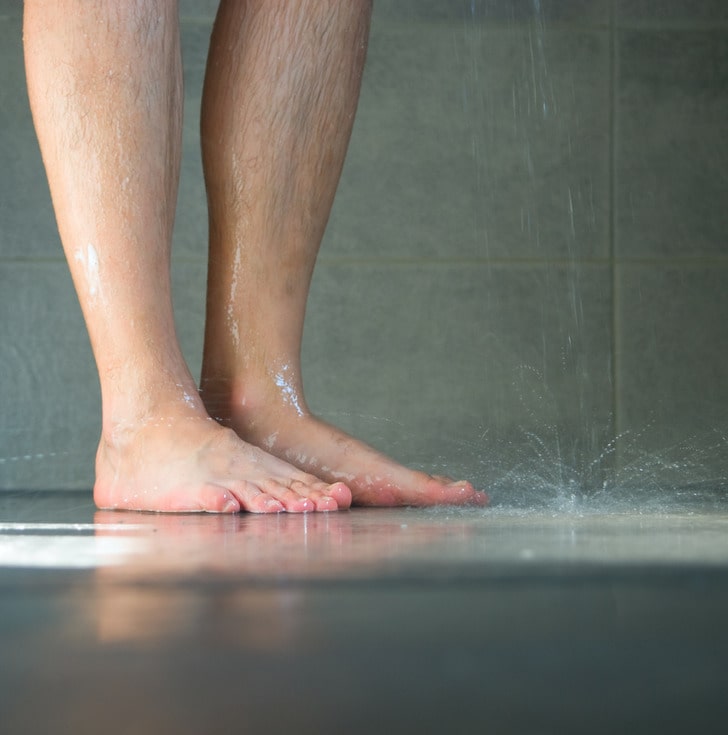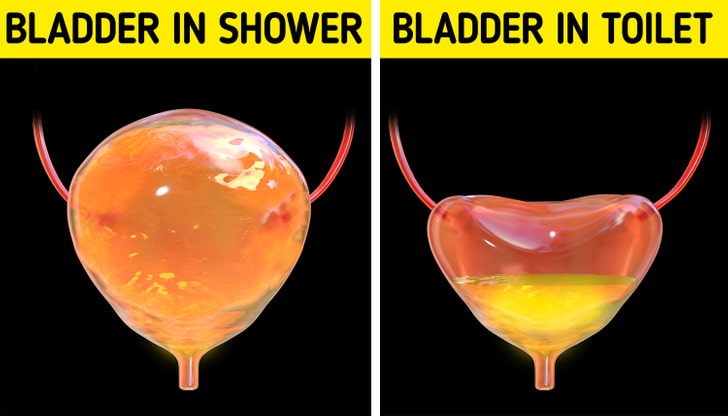Peeing in the shower might seem like a quirky time-saver or a clever way to multitask your morning routine, but recent scientific insights reveal that this habit may have unintended consequences for your urinary and overall health. In this comprehensive guide, we will explore the benefits and drawbacks of this practice, analyze the anatomical and physiological impacts, and offer actionable advice for those who find the temptation irresistible. With input from reputable medical sources and current research, we break down the science behind shower urination and offer a balanced perspective on whether it’s really worth it.
Is It OK to Pee in the Shower?
The Allure of Peeing in the Shower: Convenience Versus Hidden Risks

Many people are drawn to peeing in the shower due to the sheer convenience it offers. Combining a routine activity with a bathroom function can feel like an efficient use of time. However, while it may appear harmless on the surface, diving deeper into the science reveals several concerns.
A Closer Look at the Hygiene Debate
On one hand, advocates claim that shower urination can help save water and simplify cleaning routines. They argue that since urine is typically sterile, it poses no significant threat when mixed with water and diluted by the shower spray. Yet, medical experts warn that even if urine is sterile, the act of urinating in the shower could lead to the spread of bacteria or cause subtle disruptions in your skin’s natural microbiome. Sources such as Mayo Clinic emphasize that maintaining proper hygiene is essential to prevent infections and irritations.
Understanding How Shower Urination Affects Bladder Training and Function

Our bladder is a highly adaptive organ that works on a cycle of storing urine and then signaling the need to void at appropriate times. When you routinely urinate in unconventional settings like the shower, you may inadvertently disrupt this natural training process.
Bladder Training: The Science Behind It
Bladder training is a method used by healthcare professionals to help individuals manage urinary urgency and frequency. Regularly delaying or hastening urination can alter the bladder’s signals, making it harder to recognize when it’s truly full. According to research published in peer-reviewed medical journals, irregular urination habits may contribute to urinary tract infections (UTIs) and overactive bladder syndrome. These studies suggest that the bladder’s natural rhythm is important for maintaining both its structural integrity and its functional efficiency.
The Impact on Urinary Health
When the bladder is not given enough time to fully empty or when its signals become inconsistent, it might lead to residual urine in the bladder—a condition that increases the risk of UTIs. Research outlined by WebMD explains that stagnant urine can provide a breeding ground for bacteria, potentially leading to infections that require medical attention.
Disruption of Natural Urination Cycles
Peeing in the shower might seem to be a harmless deviation from routine, but this habit can create long-term complications. Regularly altering your voiding schedule can lead to issues such as decreased bladder capacity and increased frequency of urination. The concept of “bladder retraining” in urology is based on establishing a consistent voiding schedule, which becomes challenging if habits like shower urination are common.
Anatomical Considerations: How Your Bladder Reacts to Shower Urination

Anatomically, the bladder and the surrounding muscles are designed to operate under specific conditions. Altering these conditions—even subtly—can have consequences on both structure and function.
The Bladder’s Role in Urination
The bladder is not just a passive reservoir; it’s an active muscle that contracts and relaxes to expel urine. When you pee in the shower, you might inadvertently be training your bladder to associate a particular setting with the act of urination. Over time, this can change the bladder’s responsiveness. Research by leading urologists notes that any deviation from normal voiding patterns could potentially weaken the bladder muscles or alter neural pathways involved in bladder control.
Anatomical Implications of Unconventional Urination
The act of urinating in a standing position in the shower, for example, might influence the way urine flows from the body, sometimes leading to splashing or improper distribution. Although some may argue that the shower’s water minimizes any negative effects, it does not necessarily eliminate the risk of disrupting the anatomical function of the bladder. For instance, studies referenced by Harvard Health Publishing indicate that poor urination habits can contribute to long-term complications in bladder function, especially in individuals who already face urinary issues.
Balancing Hygiene and Function
When discussing anatomical implications, it’s crucial to note that the body is resilient. However, the cumulative effect of repetitive, unconventional habits can lead to adverse outcomes over time. The consensus among experts is that while occasional deviations might not cause significant harm, making it a routine practice could compromise bladder training and overall urinary health.
Practical Tips: Alternatives and Strategies When the Urge Strikes

For many, the urge to pee in the shower is strong, particularly during busy mornings or after intense workouts. Fortunately, there are strategies to manage this temptation while still prioritizing bladder health and overall hygiene.
Establishing a Consistent Bathroom Routine
One of the most effective strategies is to create a consistent schedule for urination. By training your bladder to adhere to regular intervals, you help reinforce its natural signals. Set reminders if necessary, and try to use the designated bathroom area consistently. This approach not only supports optimal bladder function but also minimizes the risk of urinary tract infections and other related health issues.
Incorporating Relaxation Techniques
Stress and anxiety can sometimes lead to an increased urge to urinate. Incorporating relaxation techniques such as deep breathing, meditation, or even a short walk before your shower can help mitigate this urge. Techniques derived from cognitive behavioral therapy have been shown to be effective in managing bladder overactivity and promoting healthier voiding habits.
Redefining Your Morning Routine
If you find yourself habitually peeing in the shower, consider revising your morning routine to allow time for a proper bathroom visit before stepping into the shower. This small adjustment can have significant long-term benefits for your urinary health. Additionally, improving your bathroom routine can contribute to overall better personal hygiene and cleanliness.
Exploring Medical Advice
For those who experience frequent urges or find that their bladder control is diminishing, seeking professional advice is crucial. Urologists and healthcare providers can offer personalized strategies and, if necessary, medical treatments to help manage any underlying conditions. Websites like Mayo Clinic and Healthline provide extensive resources on bladder health and urinary tract management that may be useful for further reading.
Addressing the Broader Implications of Shower Urination
Beyond the immediate concerns of bladder training and anatomical considerations, peeing in the shower touches on broader themes such as water conservation, hygiene practices, and even environmental impacts.
Water Conservation Myths and Realities
Some advocates of shower urination point to water conservation as a major benefit. The logic is that by combining urination with your shower routine, you might save water that would otherwise be used in a separate toilet flush. While this may hold some truth from an environmental standpoint, the potential health risks could outweigh the benefits. Experts suggest that water conservation is better achieved through more comprehensive measures, such as using low-flow fixtures and reducing overall water usage in other aspects of daily life.
The Role of Personal Hygiene in Public Perception
There is also a social aspect to consider. Cultural norms and personal hygiene standards play a significant role in shaping our habits. In many societies, urinating in the shower is seen as unorthodox, if not outright unhygienic. Public health campaigns and expert guidelines often emphasize the importance of maintaining strict hygiene practices, especially in shared living environments. This reinforces the idea that while the practice might seem convenient, it could have implications for both personal health and the perceptions of those around you.
Final Thoughts: Weighing the Convenience Against Long-Term Health
While peeing in the shower might save a few seconds in your busy morning routine, the potential long-term implications for your bladder and overall urinary health should not be overlooked. The convenience of multitasking must be weighed against the science of bladder training and the anatomical realities of our bodies. By understanding the risks and benefits, you can make an informed decision that aligns with both your lifestyle and your health goals.
A Balanced Perspective
In summary, while occasional deviations might not be harmful, making peeing in the shower a routine practice can potentially disrupt natural bladder function, increase the risk of infections, and even affect your personal hygiene in subtle ways. For those who are particularly tempted by the convenience, adopting a consistent bathroom routine, exploring relaxation techniques, and being mindful of your body’s natural signals are recommended strategies to maintain long-term urinary health.
External Insights for Further Learning
For further reading on the topic, consider exploring resources from reputable institutions:
- Learn more about bladder training and urinary health at Mayo Clinic.
- Read expert opinions on the risks of unconventional urination habits on WebMD.
- Discover comprehensive guides on personal hygiene and health practices at Healthline.
Embracing a Healthier Daily Routine
Ultimately, the science suggests that while the idea of peeing in the shower may be appealing from a convenience standpoint, it might not be the best decision for your bladder or overall health. Prioritizing a routine that respects your body’s natural processes and maintains high hygiene standards is essential. With proper bladder training, routine bathroom visits, and attention to your overall lifestyle, you can safeguard your urinary health while still managing your busy schedule.
By integrating practical advice with scientifically backed insights, this guide aims to empower you to make informed decisions about your personal habits. Remember, it’s not just about saving time—it’s about preserving your long-term health and well-being.
Conclusion: Making the Informed Choice
In the end, the debate over whether peeing in the shower is a harmless quirk or a potentially risky habit comes down to understanding the impact on your bladder and overall hygiene. With the right balance of convenience and care, you can optimize your daily routine without compromising your health. Whether you’re focused on water conservation, personal hygiene, or simply managing a hectic schedule, taking a few extra moments for proper bladder care can yield significant benefits in the long run.
As with any health-related habit, staying informed and adaptable is key. Use the insights provided in this article to evaluate your own routines, consult with healthcare professionals when needed, and embrace a lifestyle that prioritizes both efficiency and well-being. Ultimately, making educated choices about your daily practices will help you maintain optimal urinary health and overall quality of life.
Preview photo credit Kateryna Kon / Shutterstock.com









